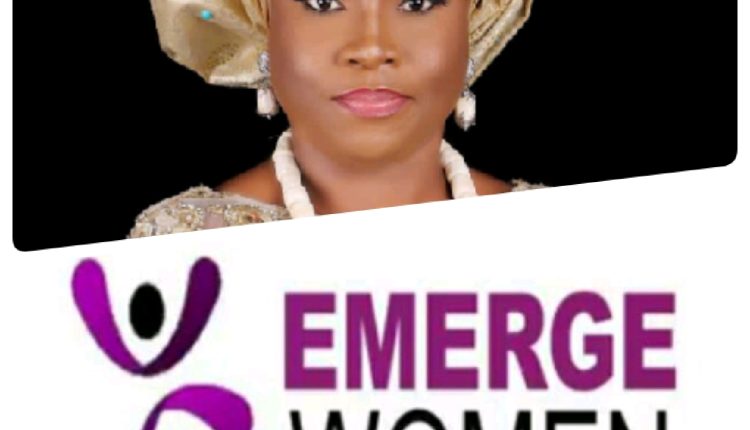Emerge Women call for strict adherence to laws against gender based violence, increase representation in politics
The founder of Emerge Women Development initiative, Mary Ikoku, has called for strict adherence to laws enacted against gender based violence across the 36 states of Nigeria and the Federal Capital Territory, Abuja.
Ikoku who is also a development and Strategic Communication Professional
spoke against the backdrop of the year 2024 International Women’s Day, also canvased for equal opportunity and support to be given to women to enable them to rise in career, education, entrepreneurship, and politics.
She pointed out that concerted efforts must be made to stop discrimination against the female gender in Nigeria.
Ikoku also called on the Federal and State governments as well as other key development institutions in Nigeria to invest in women’s development through education and skill acquisition.
According to her, “Investments should be made by various stakeholders, including governments, businesses, organizations, and individuals. The areas that should be focused on when investing in women for accelerated development include education and skill development, healthcare and well-being, economic empowerment, leadership and decision-making roles, and promoting gender equality and inclusivity in all aspects of society. By investing in these areas, we can create equal opportunities and empower women to contribute effectively to sustainable development.
“Some of the pressing needs of Nigerian women include safety, we want a country that is safe for all, and not one that we sleep with our eyes open.
“Promoting gender equality and women’s rights is a very critical area that we must address and always ensure the overall well-being of women in Nigeria.
“We must encourage economic empowerment and full participation of the Nigeria women in all spheres of life. It is important that we provide for a healthy society and a country that works for everyone.
“We want access to quality education and skill development opportunities, adequate healthcare services and maternal care, economic empowerment and entrepreneurship support, protection against gender-based violence and discrimination, inclusion in decision-making processes, and the promotion of gender equality and women’s rights. It is crucial to address these needs to ensure the overall well-being, empowerment, and full participation of Nigerian women in all spheres of life”.
She insisted that a lot of work is needed to be done in order to change the aged long belief in Africa that the woman belongs to the kitchen and not fit for political leadership.
She said, “The small number of women in the elective political positions in Nigeria doesn’t only stem from the fact that the men don’t want the women to be voted for, but it’s as a result of the patriarchal nature of the African society.
“A patriarchal society can be a system where some women themselves can openly support the man dominance of leadership positions.
“What is simply needed for now is that we must do a lot of work in terms of changing the mindsets of our people through advocacy and getting women to aspire for leadership positions at all levels and we urge our people to begin to support women in politics”.
She also urged women to take advantage of the proposed constitution review by the 10th National Assembly to press for increased women participation in government and politics.
“We can also address this issue constitutionally using legal framework. Though the 9th NASS disappointingly disapproved the five gender bills, we have a renewed hope in the 10th NASS. The 10 National Assembly has provided the opportunity for women to rise in politics through the call for memos to present the bill that seeks 35 per cent affirmative action for women in elective and appointment positions and another one that seeks for more seats for women in the parliament again. Let’s be more strategic this time.
“As we commemorate this year’s international women’s day, we must understand that Africa and Nigeria women need access to good education, key development opportunities access to good health and maternal care, economic empowerment, entrepreneurship support, protection against gender based violence in our communities”. Ikoku said.

